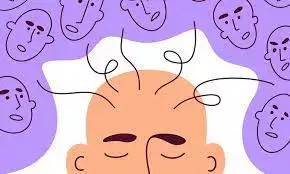- Home
- Medical news & Guidelines
- Anesthesiology
- Cardiology and CTVS
- Critical Care
- Dentistry
- Dermatology
- Diabetes and Endocrinology
- ENT
- Gastroenterology
- Medicine
- Nephrology
- Neurology
- Obstretics-Gynaecology
- Oncology
- Ophthalmology
- Orthopaedics
- Pediatrics-Neonatology
- Psychiatry
- Pulmonology
- Radiology
- Surgery
- Urology
- Laboratory Medicine
- Diet
- Nursing
- Paramedical
- Physiotherapy
- Health news
- Fact Check
- Bone Health Fact Check
- Brain Health Fact Check
- Cancer Related Fact Check
- Child Care Fact Check
- Dental and oral health fact check
- Diabetes and metabolic health fact check
- Diet and Nutrition Fact Check
- Eye and ENT Care Fact Check
- Fitness fact check
- Gut health fact check
- Heart health fact check
- Kidney health fact check
- Medical education fact check
- Men's health fact check
- Respiratory fact check
- Skin and hair care fact check
- Vaccine and Immunization fact check
- Women's health fact check
- AYUSH
- State News
- Andaman and Nicobar Islands
- Andhra Pradesh
- Arunachal Pradesh
- Assam
- Bihar
- Chandigarh
- Chattisgarh
- Dadra and Nagar Haveli
- Daman and Diu
- Delhi
- Goa
- Gujarat
- Haryana
- Himachal Pradesh
- Jammu & Kashmir
- Jharkhand
- Karnataka
- Kerala
- Ladakh
- Lakshadweep
- Madhya Pradesh
- Maharashtra
- Manipur
- Meghalaya
- Mizoram
- Nagaland
- Odisha
- Puducherry
- Punjab
- Rajasthan
- Sikkim
- Tamil Nadu
- Telangana
- Tripura
- Uttar Pradesh
- Uttrakhand
- West Bengal
- Medical Education
- Industry
Untreated depression is tied with prostate cancer recurrence

Untreated depression is tied to prostate cancer recurrence suggests a recent study published in the Cancer Causes & Control
Prostate cancer is a form of cancer that begins in the prostate gland cells and is found only in males.
Whether treating prostate cancer survivors with a depressive disorder with antidepressants can affect their cancer outcomes is unknown. They evaluated the association between antidepressant use and prostate cancer recurrence, in survivors with comorbid depressive disorders.
The researchers conducted a longitudinal cohort study of 10,017 men with prostate cancer (stages I-II) diagnosed who also had a comorbid depressive disorder followed a maximum of 22 years, and examined rates of biochemical recurrence by antidepressant medication use. We conducted multivariable Cox models based on time-dependent antidepressant drug use status and examined the risk of biochemical recurrence by the cumulative duration of antidepressant use.
Results of the study are:
- Of these 10,017 survivors, 1842 (18%) experienced biochemical recurrence over 69,500 person-years of follow-up.
- The prostate cancer biochemical recurrence rate was greater with antidepressant non-use (31.3/1000 person-years) than antidepressant use (23.5/1000 person-years).
- In Cox proportional hazards multivariable-adjusted models, non-use of antidepressants was associated with a 34% increased risk of biochemical recurrence compared to antidepressant use (HR = 1.34, 95% CI: 1.24-1.44).
- More extended use of antidepressants was associated with a lower biochemical recurrence risk (P trend test < 0.001).
Thus, Untreated depressive disorders in prostate cancer patients may be associated with an increased risk of biochemical recurrence.
Reference:
Haque R, Reading S, Irwin MR, Chen LH, Slezak J. Antidepressant medication use and prostate cancer recurrence in men with depressive disorders. Cancer Causes Control. 2022 Sep 9. doi: 10.1007/s10552-022-01623-5. Epub ahead of print. PMID: 36083407.
Keywords:
Untreated, depression, prostate, cancer, recurrence, Depression, General Medicine, Oncology, Vaccination, Reina Haque, Stephanie Reading, Michael R Irwin, Lie Hong Chen, Jeff Slezak, Cancer Causes & Control
Dr. Shravani Dali has completed her BDS from Pravara institute of medical sciences, loni. Following which she extensively worked in the healthcare sector for 2+ years. She has been actively involved in writing blogs in field of health and wellness. Currently she is pursuing her Masters of public health-health administration from Tata institute of social sciences. She can be contacted at editorial@medicaldialogues.in.
Dr Kamal Kant Kohli-MBBS, DTCD- a chest specialist with more than 30 years of practice and a flair for writing clinical articles, Dr Kamal Kant Kohli joined Medical Dialogues as a Chief Editor of Medical News. Besides writing articles, as an editor, he proofreads and verifies all the medical content published on Medical Dialogues including those coming from journals, studies,medical conferences,guidelines etc. Email: drkohli@medicaldialogues.in. Contact no. 011-43720751


